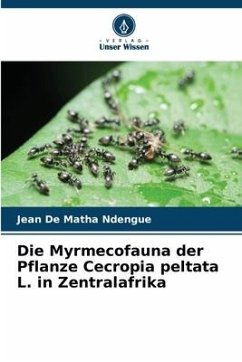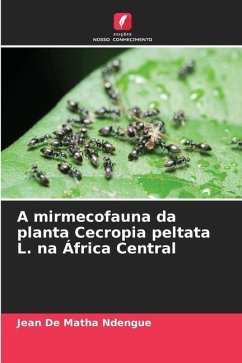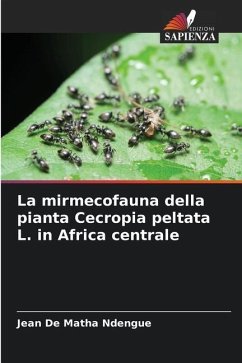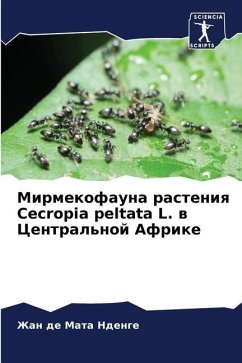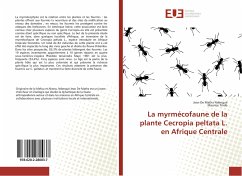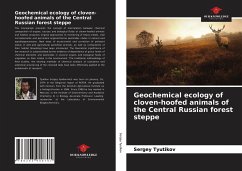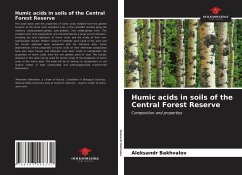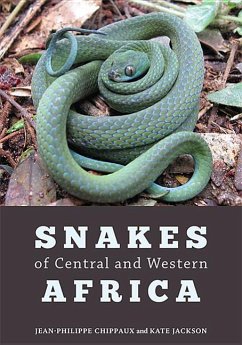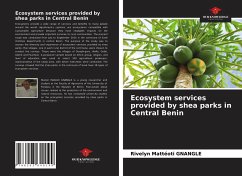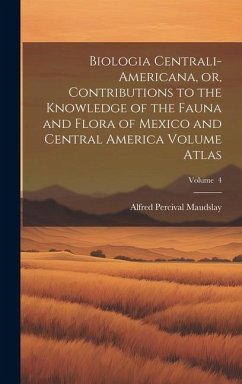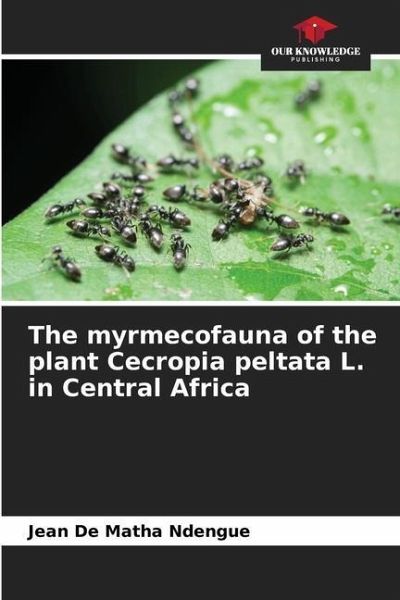
The myrmecofauna of the plant Cecropia peltata L. in Central Africa
Versandkostenfrei!
Versandfertig in 6-10 Tagen
24,99 €
inkl. MwSt.

PAYBACK Punkte
12 °P sammeln!
Myrmecophily is the relationship between plants and ants: plants provide ants with food and nesting sites in their domatia; in return, ants protect them from attack by herbivores. In Latin America, this association is well known in several species of the genus Cecropia, where it is presented as specific or non-specific. The aim of the present study was to carry out an inventory of the myrmecofauna of Cecropia peltata L., a species introduced into tropical forest Africa, at a number of locations in Africa. A total of 84 individuals of this plant were surveyed along the left and right banks of t...
Myrmecophily is the relationship between plants and ants: plants provide ants with food and nesting sites in their domatia; in return, ants protect them from attack by herbivores. In Latin America, this association is well known in several species of the genus Cecropia, where it is presented as specific or non-specific. The aim of the present study was to carry out an inventory of the myrmecofauna of Cecropia peltata L., a species introduced into tropical forest Africa, at a number of locations in Africa. A total of 84 individuals of this plant were surveyed along the left and right banks of the Dibamba River. In the sites surveyed, 83.3% of plants were host to ants. The 19 species inventoried belong to 10 genera divided into four subfamilies. The species Pheidole tenuinodis Mayr, 1901 is the most common (53.4%). Five species are rare. The stem is the most colonized part of the host plant, with the highest species richness. These results attest to the presence of ants on C. peltata L. and demonstrate the high diversity of this fauna.



